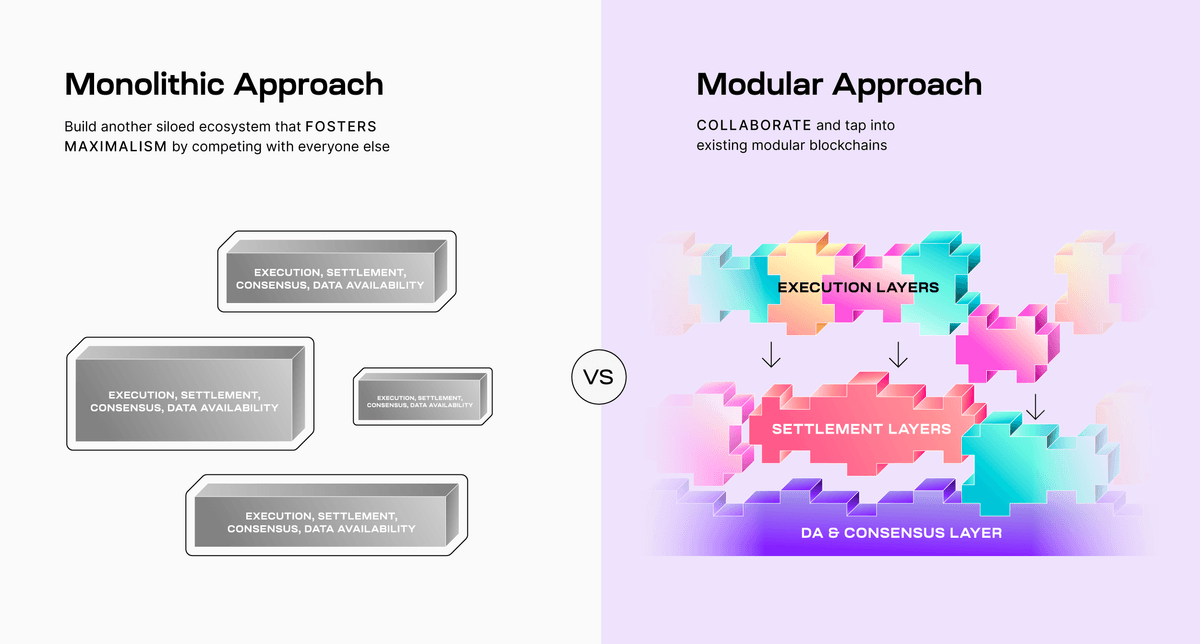Summary
- Modular blockchains make users first class citizens by enabling them to directly verify the blockchain.
- Modularism, not maximalism: building blockchain infrastructure should be collaborative, not competitive.
- Modular blockchains enable communities to become sovereign, enabling them to self-organize independently.
Introduction
Blockchains are a social movement as much as they are a technology. They help communities of people independently organize and carry out their goals. Of course, this means that blockchains themselves need to stand for certain values. Without values, blockchains would be no better than web2 tech companies. Here are the values that modular blockchains aim for.
Users are first-class citizens
The point of open blockchains is that they are verifiable. Anybody should be able to run a node and personally verify that the network is operating correctly. While validators are responsible for processing transactions, the users who run nodes make sure that validators are behaving correctly. If a validator decides to act negatively, users can verify the behavior and punish it accordingly - through on-chain penalties like slashing or socially through forking.
Since blockchains depend on users running nodes to keep the network secure, modular blockchains aim to minimize the cost of running a node. If running a node is too expensive, not many users will be able to afford it. This reduces the security of the chain, which could make it easier to attack.
With new innovations like fraud or validity proofs and data availability sampling, users can run a low-cost node that has the same security as a more expensive full node. By keeping the cost low for users to run nodes, they can personally verify and participate as first-class citizens of the network.
Modularism, not maximalism
Most effort spent building blockchains has gone towards new L1s. The problem is that each new L1 creates its own walled-off ecosystem that competes with every other L1. This leads to maximalism as they all fight to bring in new users to their ecosystem.
Modular blockchains create a collaborative environment with many connected chains. Each new user that a modular blockchain brings in creates value for the whole modular ecosystem, not just a single L1. Modular blockchains collaborate while monolithic L1s compete.
The other benefit of collaboration is that developers can reuse and build on existing modular blockchains. This allows them to mix and match the components they need instead of building an entirely new L1 whose tech is limited to a single chain.
Sovereign communities
Blockchains enable sovereignty by allowing groups of people to organize in a shared setting without requiring a trusted intermediary. Modular blockchains, in particular, give communities the option of sovereignty. With sovereign rollups, communities can own a chain that is independent.
If part of the community has different goals from the rest of the group and wants to pursue their own vision, they can fork the sovereign rollup and organize it around their community and mission. Sovereignty provides complete flexibility and freedom to the community.
If the community does not require sovereignty, they can alternatively choose to use a chain that is shared by many other distinct communities. The flexibility of choice over sovereignty is completely up to the communities choice, aided by modular blockchains.
